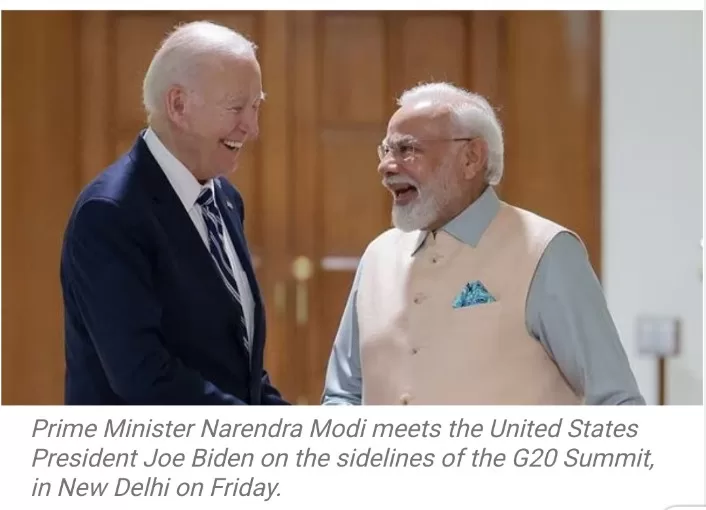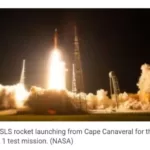In a significant diplomatic meeting prior to the G20 Leaders’ Summit in New Delhi, Prime Minister Narendra Modi and US President Joe Biden have reaffirmed the strong bonds between their nations. Their discussions focused on bolstering global semiconductor supply chains, a topic of vital strategic importance to both countries, building on prior conversations held during their bilateral meeting in June.
President Biden took the opportunity to reiterate the United States’ unwavering support for India’s enduring aspiration to secure a permanent seat on the United Nations Security Council (UNSC). He also expressed his backing for India’s candidacy as a non-permanent member in the UNSC for the term 2028-29.
A joint statement released by the White House following their meeting conveyed, “The leaders called on their governments to continue the work of transforming the India-US Strategic Partnership across all dimensions of our multifaceted global agenda, based on trust and mutual understanding.”
The defense collaboration between the two nations received a significant boost during Prime Minister Modi’s visit to the United States in June. This visit witnessed the signing of a memorandum of understanding (MoU) between General Electric and Hindustan Aeronautics Ltd for the production of GE F-414 jet engines in India, dedicated to HAL’s Light Combat Aircraft Mk 2. The successful notification process in the US Congress, with no objections raised, paves the way for both governments to commence negotiations regarding the terms of this agreement. It is anticipated that this agreement will encompass substantial technology transfer to India.
Additionally, Prime Minister Modi and President Biden discussed India’s intent to procure MQ-9B Predator drones from US company General Atomics. Furthermore, both leaders welcomed India’s role as a repair and maintenance hub for US Navy vessels and expressed a shared commitment to further collaboration involving private sector entities within the defense industry.
Semiconductor supply chains were a central theme in their discussions. The joint statement highlighted, “The leaders reiterated their support for building resilient global semiconductor supply chains, noting in this respect a multi-year initiative of Microchip Technology, Inc., to invest approximately $300 million in expanding its research and development presence in India and Advanced Micro Device’s announcement to invest $400 million in India over the next five years to expand research, development, and engineering operations in India.”
Scientific cooperation encompassing space exploration, quantum computing, and biotechnology was another key aspect of their conversation. President Biden conveyed his congratulations to Prime Minister Modi on India’s successful Chandrayaan-3 mission. The leaders also engaged in talks regarding collaboration on 5G, 6G, and other advanced technologies.
Following the June meeting between Modi and Biden, India and the US resolved seven disputes at the World Trade Organization (WTO). Six of these disputes were mutually resolved post the prime minister’s visit to the US, with three initiated by the US and three by India. They pertained to measures concerning solar cells, solar modules, the renewable energy sector, steel, and aluminum products. The remaining seventh dispute, concerning poultry products, was also discussed. The leaders delved into subjects of democracy and human rights during their meeting, with President Biden raising these issues.
The joint statement emphasized, “The leaders re-emphasized that the shared values of freedom, democracy, human rights, inclusion, pluralism, and equal opportunities for all citizens are critical to the success our countries enjoy and that these values strengthen our relationship.”
Looking ahead to the G20 Summit, both countries will participate in discussions aimed at reforming multilateral development banks, enhancing climate financing, and offering debt relief to developing nations.
In related meetings, Prime Minister Modi convened with Prime Minister Pravind Jugnauth of Mauritius and Prime Minister Sheikh Hasina of Bangladesh. Further bilateral meetings are scheduled, including engagements with leaders from the UK, Japan, Germany, and Italy, among others.




